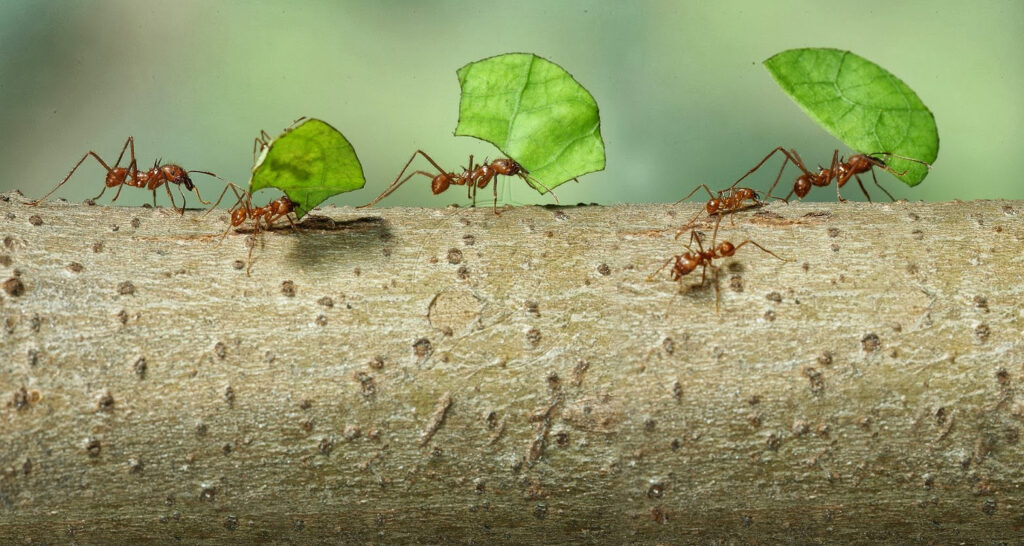
While walking down a busy street the other day I felt reminded of leaf cutter ants. Leaf cutters leave their jungle nest each day and embark upon harvesting; climbing into the branches of shrubs and trees they systematically chop leaves apart and carry the bits and pieces back home. There the cut-up pieces of leaves are left to be infested by a fungus, the fruit of which is then fed to ant larvae and the rest of the hive. In other words, leaf cutter ants are farmers, and it is how they earn their living.
The worlds of ants and man are similar in this way, as is that of all animal life. Animal life needs energy, which it harvests from other living things, sustaining the momentum of a continuous flow of natural life on our planet that has been taking place for billions of years. Ours is a busy natural world.
Making a living in the man-made world is both similar and different. The need to harvest energy remains, but the means to accomplish it has evolved. Like leaf cutter ants we busy ourselves with activity, moving about to accomplish tasks, most of which include the manipulation of matter: assembling and moving things from here to there, pulling fossil fuels from the ground, building houses and bridges, planting crops, and so forth. We too are inventive cultivators, perhaps the most inventive of all animals, because we also cultivate imagination.
Imagination allows us to manipulate not only matter, but ideas themselves. For us, the business of being animate includes not just remaking the world but remaking ourselves. Although nature constrains us and places certain limits on what we can accomplish, our imagination frees us to explore our universe in remarkable ways. Like artists who learn to work within the confines of a canvas, constraints incline us towards increased creativity; in this way, the resistance we encounter to our freedom stimulates devising new solutions.
We tend to feel that resistance is bad and should be overcome, that the best situation is that of unencumbered freedom; nonetheless, we freely seek to impose static order upon the world, to maintain the status quo. As any observer of the natural world knows, however, inability to change creates an evolutionary dead end, a truth of life, and perhaps of the universe itself. In any event, the idea of static and everlasting order is purely imaginary.
As I watched the cars, busy little metal shells carrying people about on well-worn paths, the whole scene felt very ancient and natural, but of course it’s anything but. The hurried movement is natural as is the inclination to make a living; the means, however, are products of human imagination. All of it, the cars, the streets, the signal lights, and not the least of it, the rules of the road, are man-made, entirely the result of human imagination.
We emerged within a natural world, but now spend much if not most of our lives within the structures and systems of a man-made world. Whatever life’s purpose, for us it has become very complicated, well beyond the imperatives of biology alone. Some of us want to go to the stars and imagine human life extended throughout the universe. And we are now attempting to invest technology with artificial intelligence – humanlike intelligence – so that one day our living bodies will not be necessary at all. Remaking ourselves, indeed.